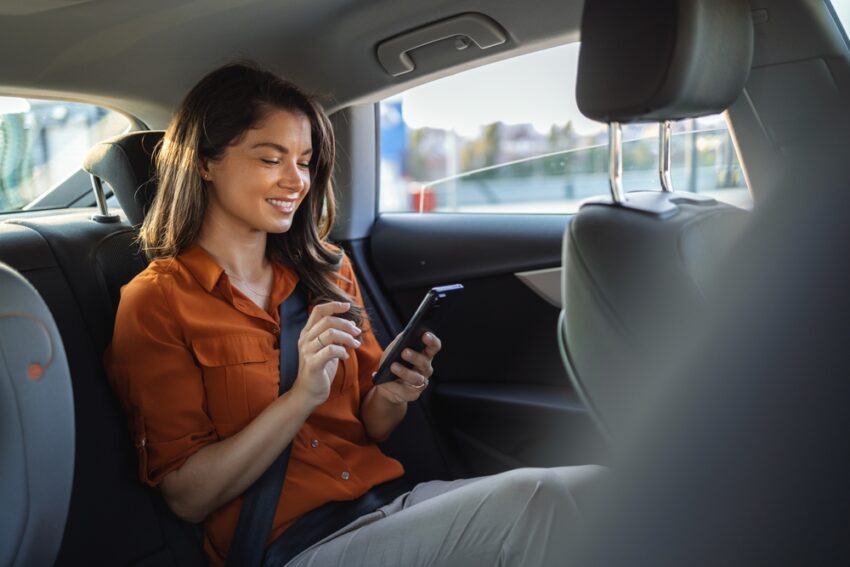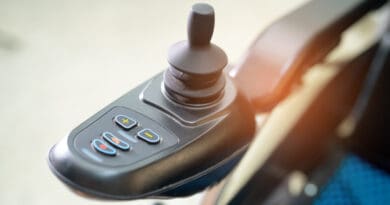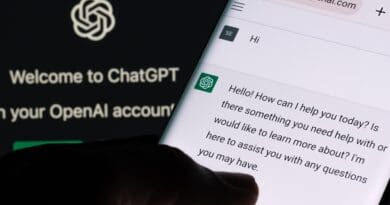
On the Move and Always Connected: How Smartphones Became Our Daily Remote Control
The smartphone was just a phone, a camera, and a window to the internet. Today, it is the central point around which the entire digital universe of the modern Briton is organized: from driving an electric car to monitoring energy consumption in the home, from entertainment to planning shopping.
Everything that once required a separate device or a trip to the computer is now in the palm of your hand—always at hand, always connected.
This shift is not just a technological innovation but a reflection of a profound change in the way we perceive and organize everyday life. We want to accomplish tasks in one click, unbound by place and time, choosing comfort and mobility over compromise. In a world where “being online” is no longer an option but the norm, the smartphone has become not just a gadget but the real brain of the personal digital ecosystem.
Let’s explore how exactly the smartphone has become the center of smart life on the go – you need just open the app.
Your Car, Your Phone, Your Rules
For today’s EV drivers, the smartphone has long ceased to be just an accessory—it is the main tool for controlling the car and the route. Especially in the UK, where EV infrastructure is growing rapidly, the phone is becoming the link between driver, charging, and services.
What your smartphone can really do for EVs:
- Open and close cars: Tesla, Polestar, and Hyundai—all major brands already allow you to do this via an app. Keys are no longer needed;
- Start and stop charging: apps like Tesla, Octopus Electroverse, and BP Pulse give you full control – without leaving the car;
- Plan routes with charging in mind: Zap-Map builds optimal routes, taking into account busy points and plug compatibility;
- Monitor technical condition: battery level, tire pressure, service reminders – all this is available via your phone;
- Make your ride safer: remote locking, car geolocation, speed control and even climate control for cold starts.
Riding an electric car is no longer a separate adventure but part of a familiar digital routine. Control becomes seamless: from checking the charging map to receiving notification when a session is over, everything is literally just a swipe away.
Smart Living Ecosystem: Everything in One App
The smartphone has become a universal tool for managing everyday life and finances. Everything that used to require a bunch of separate gadgets has long been merged into a mobile ecosystem: home, travel, shopping, and planning. Brits, for whom time is the most valuable resource, especially appreciated this integration. How the smartphone replaces dozens of devices and services:
- Mobile wallet and banking: paying for fares, coffee, or subscriptions in one click via Apple Pay or Google Pay;
- Navigation and booking: commuting, making reservations, buying tickets, renting a car or electric scooter—all through apps like Google Maps, Trainline, Uber;
- Home energy management: Octopus Energy, British Gas, and others allow you to monitor consumption, change tariffs, manage solar panels, and even run appliances on a schedule;
- Health and sports monitoring: pedometers, fitness bracelets, and meditation apps now live in your smartphone and synchronize with your smart home;
- Digital documents and credentials: driver’s licenses, insurance, travel passes, and even house keys are all stored and presented through your phone.
The concept of “one app for everything” is no longer a dream: today it is mobile ecosystems that are becoming the standard for managing every part of modern life. This saves time, reduces stress, and creates a new quality of life—simple, flexible, and personalized.
Digital Entertainment on the Go: Stream, Play, Engage
In the 2020s, Britons stopped just “scrolling” on the subway. The smartphone has become a real entertainment center: you can watch movies, listen to music, compete in intellectual games, bet on sports, or even participate in online tours of museums.
What users in the UK are really enjoying when they open the apps:
- Streaming movies and TV series: Netflix, BBC iPlayer, Amazon Prime Video—watch anywhere, no screen or speed restrictions;
- Music and podcasts: Spotify, Apple Music, Deezer—playlists sync across devices, and podcasts become part of your morning itinerary;
- Mobile games and quizzes: From Candy Crush to chess on Chess.com to cybersports on Twitch, entertainment is always at your fingertips;
- Educational services: Duolingo, Blinkist, MasterClass—now you can study in a queue or on a trip without being out of the context of the day;
- Mobile online gaming: UK platforms, including NineWin, emphasize security, speed, and ease of login for any user. This includes both games of luck and live dealer formats, such as those on Live News Chat.
Responsivity is becoming the new standard, with apps offering screen time limits, reminders to take a break, and flexible privacy and control settings. Open the app to maintain a balance between entertainment and other aspects of life, making the digital environment truly healthy- To play at Nine Win Casino, a popular UK online platform, open the app – simply complete the Ninewin login process
Privacy, Security and Trust – in One Device
The digital transformation of everyday life raises questions: how to maintain privacy, keep data secure and not lose control over your services? The answer lies in the technologies that are now embedded in almost every mobile app in the UK.
Login by fingerprint or Face ID, mandatory PIN codes, the ability to control access to individual app functions. Two-factor authentication (2FA) has become the standard not only for banking services, but also for apps related to transportation management, finance, and even entertainment. What used to seem complicated now works “out of the box” and requires neither technical knowledge nor unnecessary actions from the user.
Developers of services for electric vehicles and digital entertainment in the UK strictly comply with GDPR requirements, implement encryption at all stages of data transfer, and publish open privacy policies. For example, in the Octopus or Zap-Map app, the user can see exactly what data is being collected and for what purpose. Transparency and ease of customization management are becoming an integral part of brand trust – from buying a ticket to online gaming, for example through the Nine Win platform.
Security doesn’t have to get in the way of convenience: the best apps combine simplicity with a high level of protection, giving you peace of mind about your personal data and finances – even on the road, even when you change devices.
Conclusion: The Smartphone is the Heart of Digital Life
The cell phone has long ceased to be just a phone. It is a modern remote control for transportation, home, leisure and personal finance. For UK residents, the smartphone has become central to a sustainable, flexible and mobile lifestyle – from charging an electric car to favorite online entertainment and new habits that are shaping the future of smart living.
But with this convenience comes a new responsibility: the more tasks our phone handles, the more important it is to be conscious of privacy, digital habits and app choices. The right balance between comfort, security and time is key not only to a successful digital life, but also to personal comfort in a world that is changing faster than ever before.





